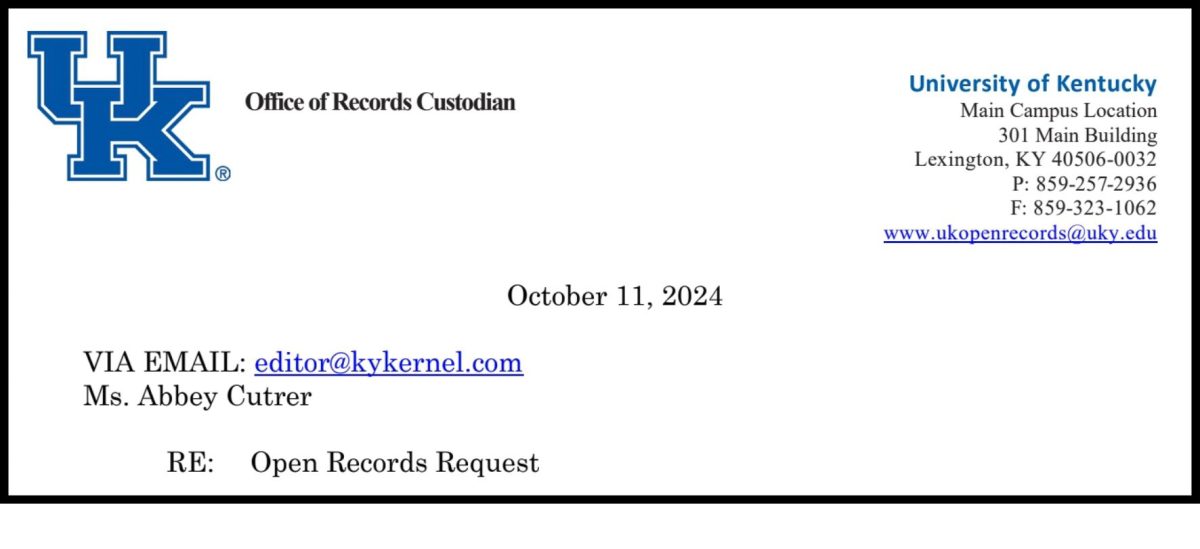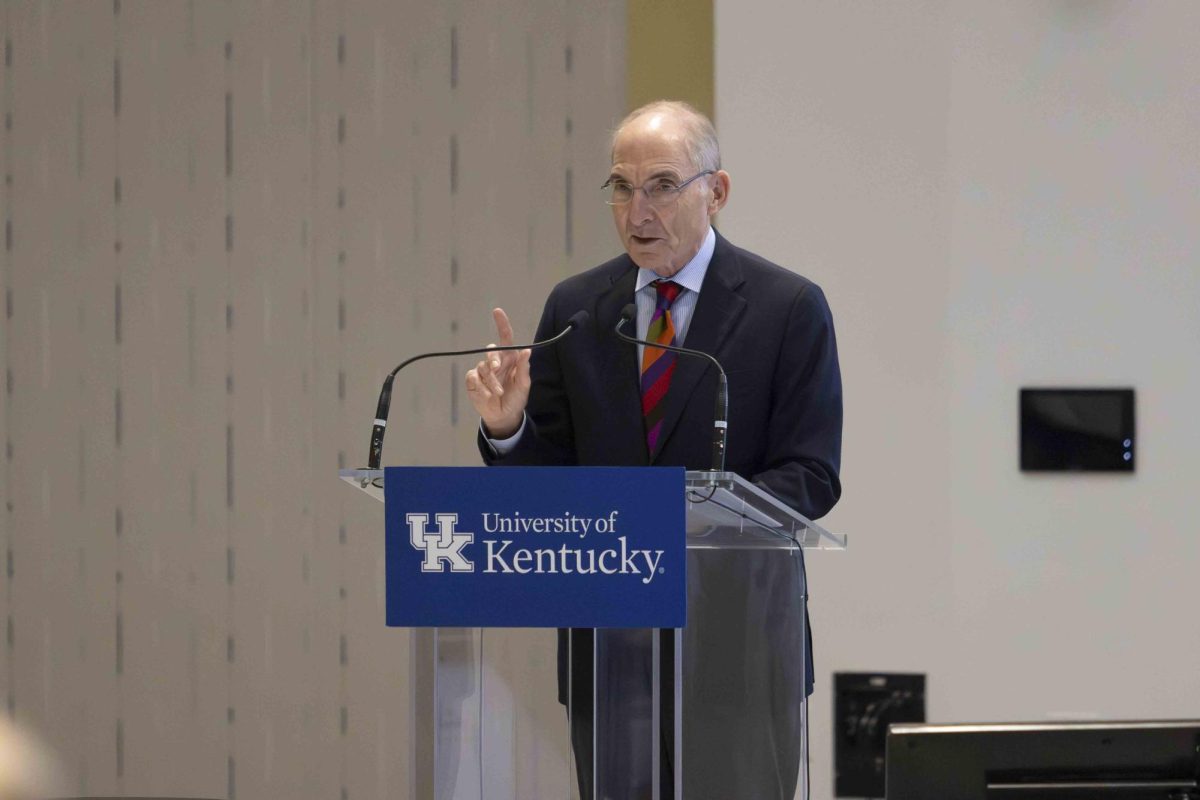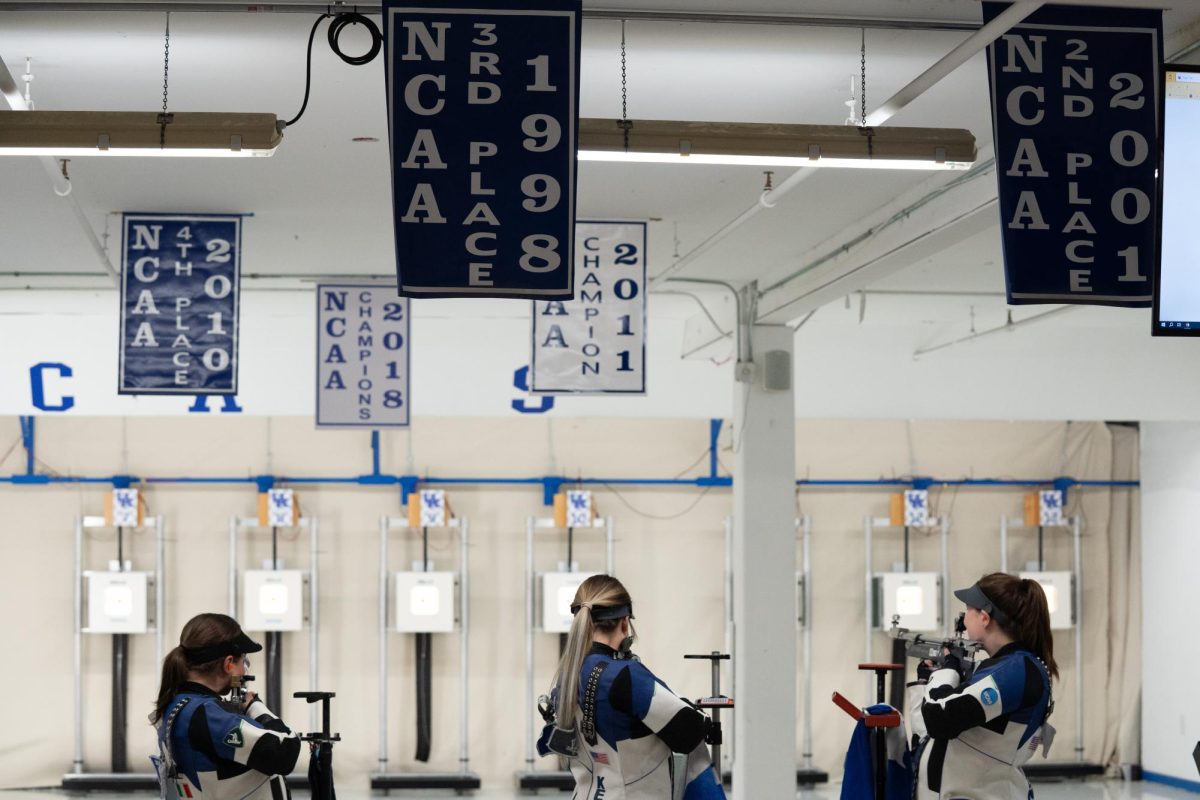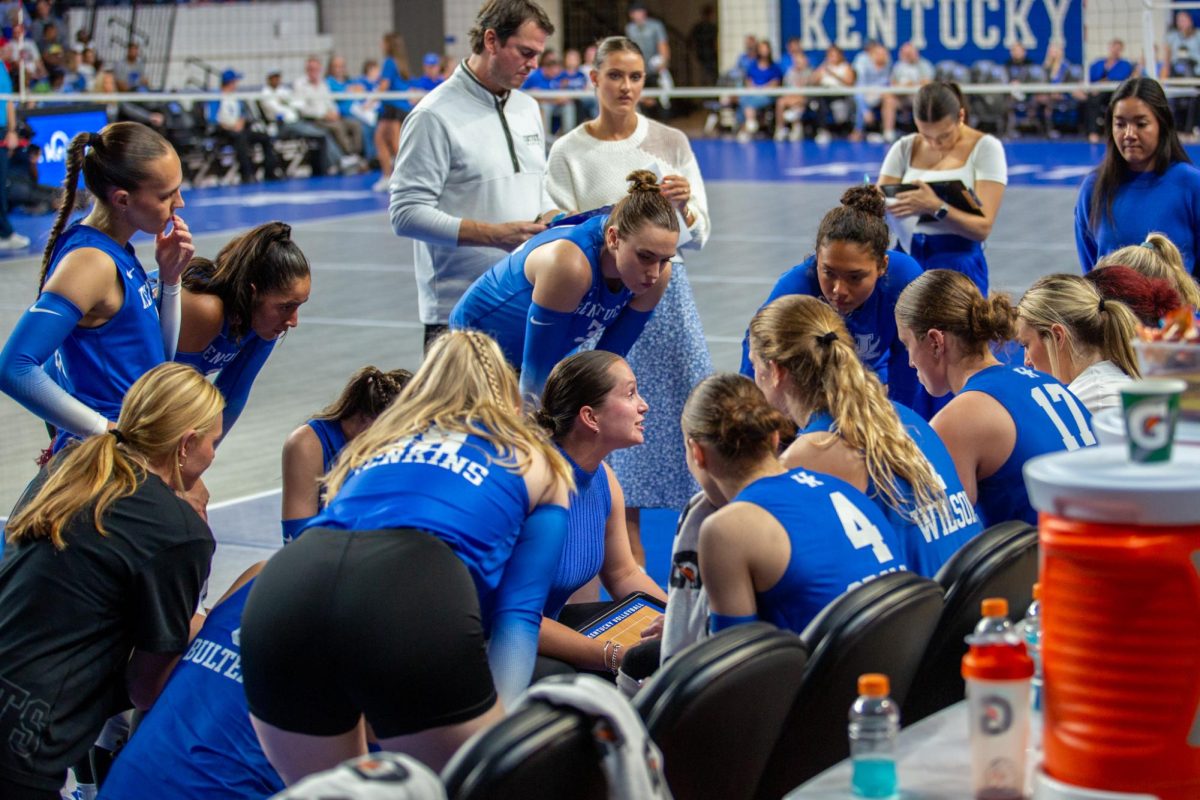University of Kentucky students dedicate far too much time to completing unnecessary courses. How can UK change that?
By overhauling its entire approach to the UK Core requirements.
UK requires all students to complete 30 credit hours in 10 areas to fulfill its general education requirements, known as the UK Core.
For students taking 15 credits per semester, this means finishing the UK Core will require a full school year before they can even begin focusing on their primary studies, unless the requirements are completed beforehand.
In addition to the UK Core requirements, students must fulfill all the requirements assigned by their specific college.
My college requirements include the following: two natural science, two social science, two humanities, one race and ethnicity, one lab and field work, two electives and two foreign languages courses.
As a result, I must commit both freshman and sophomore years to fulfilling the UK Core and college requirements.
With time-consuming, costly and exhausting requirements like these, students should expect a worthwhile return.
Unfortunately, these classes prove unrewarding.
If UK plans on upholding its mission statement of facilitating learning, expanding knowledge and serving a global community, then it must radically reform its UK Core.
In this article, I will identify the key problems I experienced with the UK Core and the College of Arts and Sciences requirements.
Beth McMurtrie articulated my primary criticism of these requirements perfectly in an article titled “Studies are Disoriented by Gen Ed. So Colleges Are Trying to Fix It.”
She wrote, “On many campuses general ed still takes the shape of a checklist: two courses from this category, three from that. Because there is no overarching design to this approach, students flock to courses with the easiest requirements, or the ones that check the most boxes, rather than those that genuinely interest or challenge them.”
“The language used by students, advisers, and professors, too, is telling: These are courses that you want to get through, get over, get done,” she said.
Unfortunately, McMurtrie’s insight represents perfectly the experiences of myself and other students at UK.
The UK Core and college requirements impacted the entire trajectory of which minors I chose. I hold interests primarily in studies like history and biology, but UK pigeonholed me into choosing the latter because it fulfills more requirements.
To make it even more difficult, UK’s courses in biology hold requirements of their own.
For example, to enroll in the biological research skills lab (BIO 155), students need a math ACT of 23 or above or MA 109, or past or current enrollment in CHE 105.
Requirements like these would serve as small obstacles if not combined with the other 60 credits worth of courses required for the sole purpose of fulfilling meaningless obligations.
Furthermore, UK Core classes primarily lack any structure. The courses range from LIN 200 “How to create your own language” to ENG 168 “Jazz and Democracy.”
While I appreciate UK’s efforts to offer a variety of courses that appeal to every student, it’s unclear what overarching purpose these classes are all achieving.
Furthermore, as McMurtrie said, I continue to take many UK Core and college courses because they “check the most boxes.”
For my humanities requirement, I will take PHI 315 because it fulfills a UK Core requirement and advances my completion of a philosophy minor.
This predicament raises an important question: why does UK force me to fulfill a requirement for humanities when I am already minoring in philosophy and majoring in English?
Furthermore, after already taking several philosophy and English courses, why don’t those fulfill the UK Core humanities requirement?
Unfortunately, the issues with UK class requirements don’t end here.
Two of the UK Core requirements are Composition and Communication I and Composition and Communication II.
As someone who has written an abundance of essays, research papers and delivered countless speeches in classes, taking composition and communication courses serve no purpose in advancing my educational growth.
UK must perform a better job of assigning class expectations on an individual level, rather than designating courses with sweeping strokes across the board.
Unnecessary commitments like these waste students’ time, energy and money, and they significantly increase the amount of students who feel burnt out. No student should sit in a class wondering: “Why am I even here?”
Students shovel out thousands upon thousands upon thousands of dollars for their education and rightly deserve a good return on their heavy investment.
Our university must do a better job of evaluating individual student skills before forcing them to take a million different courses — many of which might hold no benefit for their academic growth.
It also must reassess whether UK Core classes are truly fulfilling a meaningful purpose in the students academic growth.
If done right, students like me won’t waste an ample amount of their time, energy and money.















































































































































Bryan Maloney • Apr 12, 2024 at 11:13 am
If you want to just be a technical drone and not a leader, your complaint might make sense. If you envision the rest of your life as being nothing but a restricted and narrow functionary, then, yes, there should be no general education requirements. Universities could churn out cogs for machines far more efficiently. Is just being a cog all you see for your future? Perhaps it is time to overhaul all higher education. Your no-general-ed approach for the lifetime technocrats. Broader additional education for the leaders.